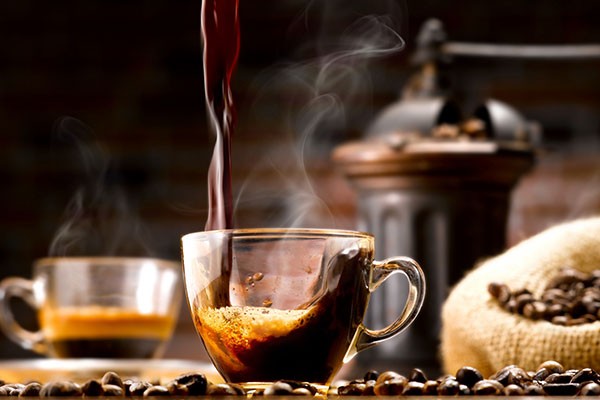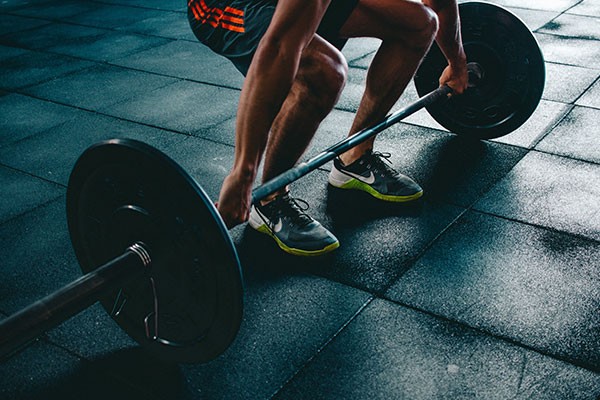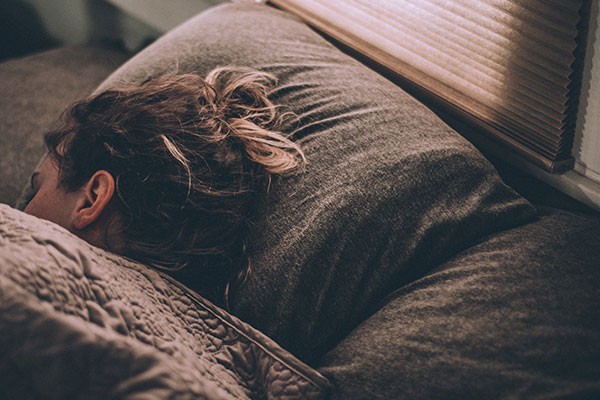Why Are We Struggling to Sleep in the Modern World?

The rundown on sleep
Our quality of sleep is influenced by diet, physical activity, genetic, and environmental factors.
And the good news is we can change most of these things.
Sleep is a critical part of our life for health and wellbeing; helping us eat less and increase the recovery of the energy storage in the brain. Sleep also helps with memory.
But not getting enough poses big problems, including the onset and progression of different diseases, such as:
With this being known, and researchers learning about the increased diagnosis of sleep disorders, the stage was set for a review to find out why.
Let’s see what they found.
Why we’re getting less sleep – poor nutrition
The research found a poor diet can wreak havoc on our sleep. The foods we consume can not only influence our wakefulness during the day but also our quality of sleep.
A healthy balance of our macronutrients (protein, fat, and carbohydrates) is important, as insufficient protein intake negatively affects our sleep.
We need to strike a balance with some of the foods we eat, too: the high consumption of noodles, sweets, and sugary drinks is associated with poor sleep, while a diet that is rich in fish, seafood, and vegetables contributes to good sleep.
Now, these are only associations, but nevertheless, it’s why I recommend a diet of 20% processed foods and 80% whole foods.
More vitamins and minerals tend to mean better sleep quality – so aim for whole foods like fruits, vegetables, and quality protein sources like fish and steak.
Looking for a good night's sleep for recovery keep in mind the 90-minute sleep cycle method.
Caffeine and sleep
Caffeine intake is having a big impact on sleep quality. Here’s what many people don’t know:
The half-life of caffeine averages 2 to 10 hours, but it can be up to 20 hours.
Now we know caffeine increases performance, but it also has side effects: it can affect our quality of sleep.
Those who consume large amounts of caffeine are more likely to be drowsy in the morning than those who consume moderate amounts.
We have to use common sense here, if you notice caffeine is affecting your sleep, then you might be someone who feels the effects of caffeine anywhere from the aforementioned 10-20 hours.
So, try cutting it out after lunch time.
Personally, I used to have caffeine at around 7 pm and noticed I couldn’t sleep as well. When I stopped it after 3 pm, my sleep quality and duration were much better.

What is alcohol's effect on sleep
Some people think alcohol helps them fall asleep. It might feel that way, but the truth is it actually shortens the REM sleep phase.
This was found for those consuming moderate amounts of alcohol: less than 1 gram per kilogram of body weight.
Moreover, alcohol consumption in the late evening prolongs slow-wave sleep in the early part of the night and affects sleep continuity. Also, drinking alcohol up to 6 hours before bed is enough to impair the quality of sleep.
How does exercise improve sleep
Notice how you sleep better after exercise?
So have scientists, who report moderate and intense physical activity has a positive effect on sleep quality, while light physical activity has no effect. Those of us who exercise sleep better and longer than those with a sedentary lifestyle.
By exercising more, we can improve the quality of sleep without the use of medication.

Cutting out screens before bed for better sleep
This is a big one for people today: we need to cut out screens before bed for adequate sleep. We're talking about iPads, smartphones, etc.
A recent review found:
"Media device access and use at bedtime is significantly associated with detrimental sleep outcomes, and lead to poor health outcomes."
Research into this is in its infantry stages, but the picture for device access is looking bleak! Stay away from your screens before bed for optimal muscle growth and fat loss!
The situation is so bad, that some researchers in America are pushing for later school starting hours for adolescents to ensure they get more sleep because they aren't putting their phones away at night.
How much sleep do we need?
This is the next obvious question, with research suggesting it depends on our age:
- Teenagers (14-17) years are recommended to get 8-10 hours of sleep.
- Young adults (18-25 years) are recommended to get 7-9 hours of sleep
- Adults (26-64 years) are recommended to get 7-9 hours of sleep
- Older adults (65 +) 7-8 hours.

The bottom line on sleeping better
Our diet plays a massive role in the quality of our sleep. Stick to a diet of 80% whole foods and 20% processed foods.
Caffeine can affect us for up to 20 hours, so limit caffeine intake before bed.
Alcohol also shortens sleep quality even in moderate amounts – stay away from it as much as possible.
Also, we need to stay away from screens and devices before bed to ensure we fall asleep quicker. Exercise can also help us achieve our recommended 7-9 hours of sleep per night.
References:
- Adolescent Sleep Working Group; Committee on Adolescence; Council on School Health. School start times for adolescents. Pediatrics. 2014 Sep;134(3):642-9. doi: 10.1542/peds.2014-1697. PMID: 25156998; PMCID: PMC8194457.
- Carter B, Rees P, Hale L, Bhattacharjee D, Paradkar MS. Association Between Portable Screen-Based Media Device Access or Use and Sleep Outcomes: A Systematic Review and Meta-analysis. JAMA Pediatr. 2016;170(12):1202-1208. doi:10.1001/jamapediatrics.2016.2341
- Foerster M, Henneke A, Chetty-Mhlanga S, Röösli M. Impact of Adolescents' Screen Time and Nocturnal Mobile Phone-Related Awakenings on Sleep and General Health Symptoms: A Prospective Cohort Study. Int J Environ Res Public Health. 2019;16(3):518. Published 2019 Feb 12. doi:10.3390/ijerph16030518
- He, S.; Hasler, B.P.; Chakravorty, S. Alcohol and sleep-related problems. Curr. Opin. Psychol. 2019, 30, 117–122.
- Hirshkowitz M, Whiton K, Albert SM, Alessi C, Bruni O, DonCarlos L, Hazen N, Herman J, Adams Hillard PJ, Katz ES, Kheirandish-Gozal L, Neubauer DN, O'Donnell AE, Ohayon M, Peever J, Rawding R, Sachdeva RC, Setters B, Vitiello MV, Ware JC. National Sleep Foundation's updated sleep duration recommendations: final report. Sleep Health. 2015 Dec;1(4):233-243. doi: 10.1016/j.sleh.2015.10.004. Epub 2015 Oct 31. PMID: 29073398.
- Hu, X.; Cheng, L.Y.; Chiu, M.H.; Paller, K.A. Promoting memory consolidation during sleep: A meta-analysis of targeted memory reactivation. Psychol. Bull. 2020, 146, 218–244.
- Irwin, M.R. Why Sleep is important for health: A psychoneuroimmunology perspective. Annu. Rev. Psychol.2016, 66, 143–172.
- Krueger, J.M.; Frank, M.G.; Wisor, J.P.; Roy, S. Sleep function: Toward elucidating an enigma. Sleep Med. Rev.2016, 28, 46–54.
- Kwok, C.S.; Kontopantelis, E.; Kuligowski, G.; Gray, M.; Muhyaldeen, A.; Gale, C.P.; Peat, G.M.; Cleator, J.; Chew-Graham, C.; Loke, Y.K.; et al. Self-reported sleep duration and quality and cardiovascular disease and mortality: A dose-response meta-analysis. J. Am. Heart Assoc. 2018, 7, e008552.
- Maquet P. The role of sleep in learning and memory. Science. 2001;294:1048–52.
- Murray, K.; Godbole, S.; Natarajan, L.; Full, K.; Hipp, J.A.; Glanz, K.; Mitchell, J.; Laden, F.; James, P.; Quante, M.; et al. The relations between sleep, time of physical activity, and time outdoors among adult women. PLoS ONE 2017, 12, e0182013.
- O’Callaghan, F.; Muurlink, O.; Reid, N. Effects of caffeine on sleep quality and daytime functioning. Risk Manag. Health Policy 2018, 11, 263–271.
- Pilcher JJ, Huffcutt AI. Effects of sleep deprivation on performance: A meta-analysis. Sleep. 1996;19:318–26.
- Prather, A.A.; Janicki-Deverts, D.; Hall, M.H.; Cohen, S. Behaviorally assessed sleep and susceptibility to the common cold. Sleep 2015, 38, 1353–1359.
- Sejbuk, M.; Mirończuk-Chodakowska, I.; Witkowska, A.M. Sleep Quality: A Narrative Review on Nutrition, Stimulants, and Physical Activity as Important Factors. Nutrients 2022, 14, 1912.
- Yu, J.; Rawtaer, I.; Fam, J.; Jiang, M.-J.; Feng, L.; Kua, E.H.; Mahendran, R. Sleep correlates of depression and anxiety in an elderly Asian population. Psychogeriatrics 2016, 16, 191–195.
- Zengin, L.; Aylaz, R. The effects of sleep hygiene education and reflexology on sleep quality and fatigue in patients receiving chemotherapy. Eur. J. Cancer Care 2019, 28, e13020.
- Zhai, L.; Zhang, H.; Zhang, D. Sleep duration and depression among adults: A meta-analysis of prospective studies. Depress. Anxiety 2015, 32, 664–670.





























